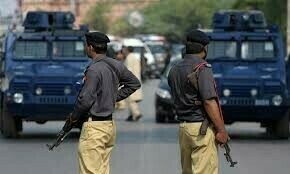ISLAMABAD: The pictorial health warning on cigarette packs will be enlarged to 60pc of the pack from June 1 next year, the parliamentary secretary of National Health Services (NHS) announced on Tuesday.
Dr Nausheen Hamid told participants of the National Workshop on Tobacco Industry Interference that coordination has also begun with the Ministry of Finance to raise taxes on tobacco products – particularly cigarettes.
Dr Hamid said tobacco use causes the deaths of 160,100 Pakistanis every year. She said the NHS ministry was taking demand and supply reduction measures to reduce the prevalence of tobacco use in the country, and as a signatory to the Framework Convention on Tobacco Control (FCTC) the state is responsible for discouraging smoking.
“About 24 million adults currently use tobacco in any form in Pakistan. The youth of Pakistan is being targeted by the tobacco industry so that ‘replacement smokers’ could be recruited. To address this major health issue, our ministry has taken demand and supply reduction measures,” she said.
As part of these measures, she said, it has been decided to enlarge the pictorial health warnings on cigarette packs.
Health warning to be enlarged to 60pc starting June 1, parliamentary secretary for NHS says
“The process has been started to notify pictorial health warnings by 60pc size of the cigarette packet, which will be implemented from June 1, 2019,” she said.
Tobacco companies currently display pictorial health warnings that are 40 to 50pc of the pack. Under the last PML-N government, then NHS minister Saira Afzal Tarar announced an increase in the pictorial health warning’s size from 40pc to 85pc, but was unable to implement it.
World Health Organisation representative Dr Ni’ma Saeed Abid said the prevalence of tobacco use in Pakistan is very high at 19.1pc – 31.8pc of men use tobacco products, as do 5.8pc of women.
He said the youth and women are the tobacco industry’s prime targets. He urged for plain packaging to be introduced for cigarette packs in Pakistan and suggested the implementation of WHO Best Buys to reduce tobacco use.
Tobacco Control Cell project manager Mohammad Javed said the cell has banned the sale of loose cigarettes, the import of tobacco and non-tobacco shisha and other related substances, tobacco advertisements in print, electronic and outdoor media, cigarette packs with less than 20 cigarettes and designated smoking areas or rooms.
They have also declared public places to be 100pc smoke free, raised public awareness and built the capacity of authorised people to support enforcement.
Malik Tanveer from the Federal Board of Revenue said at the workshop that the Inland Revenue Enforcement Network has conducted 600 raids on illicit cigarettes and seized about 1 billion of them.
The government also recently announced a ‘sin’ tax on cigarettes and sugary beverages, with a proposal to impose a Rs10 tax on every cigarette pack.
According to the Human Development Foundation, Pakistan (HDF) spends Rs140bn a year on tobacco-related diseases, which is a huge liability on the health sector. They have recommended preventive measures including excise in the form of a ‘sin’ tax to “help eradicate the spread of tobacco epidemic in the country”.
The HDF has also demanded the abolition of the third tier of taxation on tobacco products that was introduced by the 2017-18 budget and reduced taxes on cigarette packets from Rs44 to Rs16. Before the new tier was introduced, tobacco companies paid Rs114bn in annual taxes. This dropped to Rs87bn in 2017-18.
“The removal of third tier, along with the recently proposed sin tax, would help facilitate the current government to collect more revenues from the tobacco industry, which can in-turn be redirected towards the passionately established health goals of the government,” the HDF has said.
Published in Dawn, December 12th, 2018















































